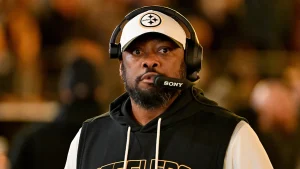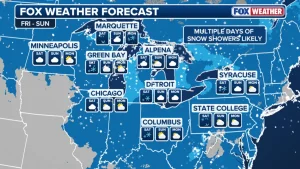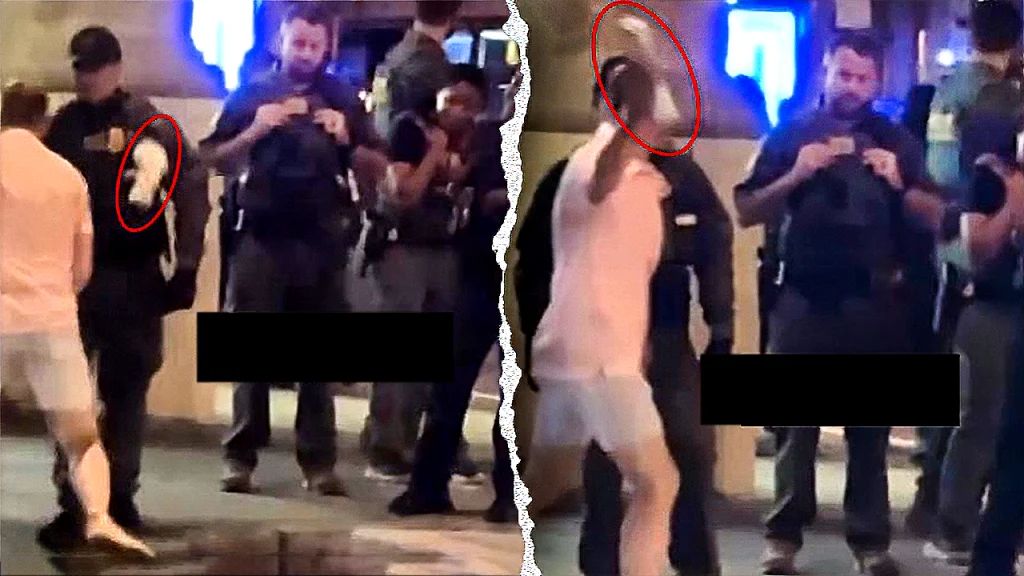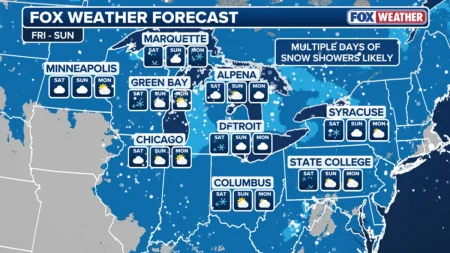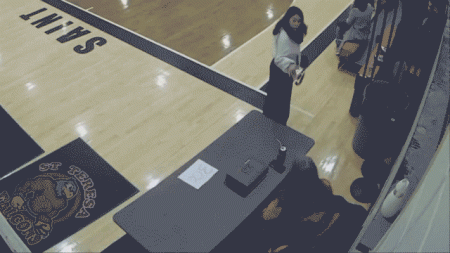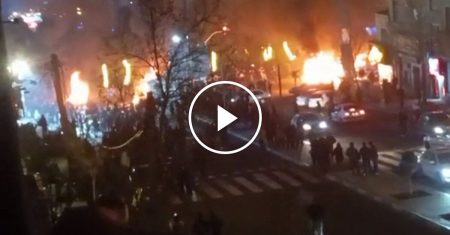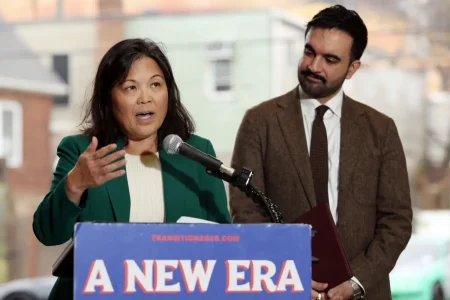The Sandwich Protest: A Legal Battle Over Free Speech and Federal Agents
In a small Washington D.C. courtroom, a peculiar case unfolds that raises questions about the line between protest and assault. Sean Dunn, formerly an international affairs specialist at the Justice Department, finds himself facing federal misdemeanor charges for throwing a sandwich at a U.S. Customs and Border Protection (CBP) agent. While the action itself is undisputed, the trial centers on a fundamental question: Was this a legitimate form of political expression or an unacceptable assault on a federal officer? The incident, which occurred on August 10 during President Trump’s controversial deployment of National Guard troops in the nation’s capital, has generated significant public interest, with some city residents viewing Dunn’s actions as a heroic stand against federal overreach.
The prosecution, led by Assistant U.S. Attorney John Parron, frames the case in simple terms: “No matter who you are, you can’t just go around throwing stuff at people because you’re mad.” The government alleges that Dunn crossed an important line when he hurled the sandwich at CBP Agent Gregory Lairmore. During testimony, Lairmore described how the sandwich “exploded” upon impact with his chest, its force felt through his ballistic vest, leaving behind the lingering smell of “onions and mustard.” The prosecution maintains that regardless of political context or Dunn’s intentions, his actions constituted an unacceptable physical confrontation with a federal officer. Though a grand jury previously declined to indict Dunn on felony assault charges, prosecutors ultimately decided to pursue the case as a misdemeanor.
Defense attorney Julia Gatto presents a markedly different narrative, characterizing the sandwich-throwing as “a harmless gesture” that served as an “exclamation point” to Dunn’s verbal protest. According to the defense, Dunn was exercising his constitutional right to speak out against what he viewed as an oppressive federal presence in Washington, D.C. “He is overwhelmingly not guilty,” Gatto insisted to the jury, suggesting that the government’s decision to pursue federal charges against her client transforms a trivial incident into a troubling precedent that potentially threatens free expression. This portrayal of Dunn’s actions resonated with many local residents who similarly opposed the deployment of federal forces in the city, some of whom hailed him as a champion of resistance after video of the incident went viral.
The trial has featured body camera footage of Dunn’s arrest several blocks from the incident. Upon being detained, Dunn can be heard saying, “I was trying to draw them away from where they were. I succeeded.” According to testimony from Agent Lairmore, Dunn approached the group of CBP officers stationed outside a nightclub, allegedly shouting profanities and calling them “fascists” and “racists.” Lairmore stated that he did not respond to these verbal provocations, acknowledging that such speech was protected by the Constitution. “He was red-faced. Enraged. Calling me and my colleagues all kinds of names,” Lairmore testified, “I didn’t respond. That’s his constitutional right to express his opinion.” The situation escalated, however, when the sandwich entered the equation.
The case highlights ongoing tensions between law enforcement and protesters during a politically charged period in American history. What some see as a simple matter of maintaining respect for law enforcement officers, others view as an overreaction that criminalizes relatively minor acts of political protest. Judge Jeanine Pirro, whose office is involved in the prosecution, previously described this as “the simplest case in the world,” suggesting a straightforward application of laws prohibiting physical interference with federal officers. However, the jury’s earlier reluctance to pursue felony charges hints at the complex questions of proportionality and intent that surround the case. Was throwing a sandwich a legitimate extension of Dunn’s verbal protest, or did it cross into territory that demands legal consequences regardless of political context?
As the trial continues, it serves as a microcosm of larger national debates about the boundaries of protest, the role of federal law enforcement in domestic policing, and the sometimes blurry line between protected speech and unacceptable conduct. Beyond determining one individual’s guilt or innocence, the outcome may influence how similar acts of protest are handled by authorities in the future. Whatever the verdict, Sean Dunn’s sandwich has already secured its place in the annals of unusual political protests, forcing both the legal system and the public to consider fundamental questions about how we balance personal expression with public order in a democratic society that values both free speech and the rule of law.
